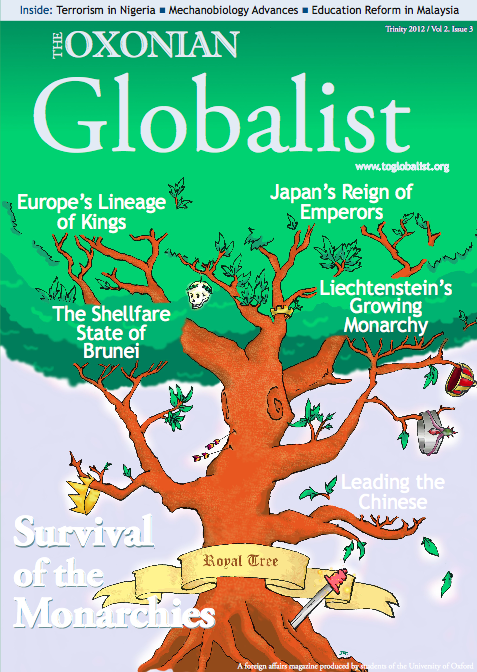
Election day: the streets of Rawalpindi, Pakistan on May 11th 2013. Photo by olaf.kellerhoff via Flickr.
Pakistan has a horrible history of disenfranchising its own people. This year protests in Dhaka’s Shahbag Square brought back haunting memories of the atrocities that the Pakistan army and its collaborators committed in the country’s former eastern wing — atrocities that were committed just to deny East Pakistanis adequate political representation. This is a harrowing thought that makes one realize the lengths to which the state is willing to go to suppress its people. The Bengalis eventually got their freedom in 1971, but Pakistan never learned its lesson.
Marginalization of minorities has come to characterize Pakistan. The country had failed to take care of its Urdu-speaking immigrants from India (Mohajir), and hence the Mohajirs had to unite to form a political party of their own, drawing support from the under-represented middle classes of Pakistan’s largest metropolis, Karachi. After fighting armed street battles and fighting for political representation and acceptance, the Muhajir Qaumi Movement (MQM), now the Muttahidda Qaumi Movement, won control of Karachi and established itself as a national force to be reckoned with.
Pakistan has suffered immensely in the past five years, ironically, under the country’s first ever democratic government to complete its term. The government has failed to provide basic security, protection of life and property and economic prosperity. Most Pakistanis are happy that the government has left office and are looking forward to an election on May 11 2013 that could potentially change the fate of the nation. But what about the people of Balochistan? Can democracy end their plight?
Balochistan, Pakistan’s largest province by area, has been completely neglected by the state. It is rife with poverty and lacks basic infrastructure and development. Balochistan has faced the worst of state neglect and as a result insurgency has spread throughout the province and separatist nationalist movements have emerged. It is of extreme importance for the country to address the concerns of Balochistan, especially since the province has a deep sea port, a border with an increasingly important trade partner Iran, and is rich in resources.
Elections seem to be the solution for Pakistan. Some believe that they may not be the medicine for Balochistan’s problems. If history has taught us anything, we know that elections could not help the suppressed in the case of the Bengalis. They had no option but to create a separate nation. The previous democratic government has not been able to provide for Balochistan either. The government could not provide security as religious militants bombed the city of Quetta, targeting the Hazara Shia population and killing hundreds. Sardar Akhtar Mengal, leader of the Balochistan National Party (BNP), returned to Pakistan recently and was extremely critical of the government, commenting, “Democracy doesn’t mean anything for the people of Balochistan. We received more corpses during the tenure of the democratic government than during a dictatorship.” However, Sardar Mengal does plan to participate in the upcoming election, which goes to show that there is some prospect for Baloch reconciliation. Despite history not being on the side of the people, and the failure of the old political order, the Baloch should have some faith in democracy.
Today’s Pakistan is a new Pakistan. It is not the Pakistan that was formed in 1947 after the partition of India. That Pakistan died in 1971 when East Pakistan became the independent nation of Bangladesh. It is not the post-1971 Pakistan because that Pakistan died in 2013 when the first democratic government in history completed a full term in office. This new Pakistan was born in 2013 and it offers new hopes and promises. It may be asking too much of the Baloch people, but they must have faith in the new Pakistan.
The Baloch can learn from the example of the Mohajirs. The Mohajirs took control of the jugular vein of the country that is Karachi. The MQM has become one of Pakistan’s most important power brokers despite having only a small proportion of seats in Pakistan’s legislature. The Mohajirs today demand respect and representation because they can threaten to bleed the country if they are shoved aside, and on many occasions they have exercised their power.
Balochistan is an extremely vital province for the state. If the Baloch are able to take control of the Gwadar port, the gas supply that is likely to come in from Iran in 2014, and of the resource rich expanse, the empowered people will see economic prosperity. Full control of the province through democratic means will also mean that the Baloch, like the Mohajirs, will be holding a trigger to the head of Pakistan’s dominating political elite. This is the only way to impose a check on the power of those who have continued to neglect Balochistan. With economic prosperity and more regional autonomy, militant and separatist movements will be subdued. Balochistan will become a part of Pakistan’s political mainstream. It is true that Balochistan’s case is far more complex than it seems in this here. Nevertheless, empowering the people of the province and bringing it under state control would surely be the first step in solving these complexities.
Sharik Bashir studies at the University of Michigan. This article originally appeared on our partner website, Graphite Publications, here: http://graphitepublications.com/can-elections-save-the-baloch/



